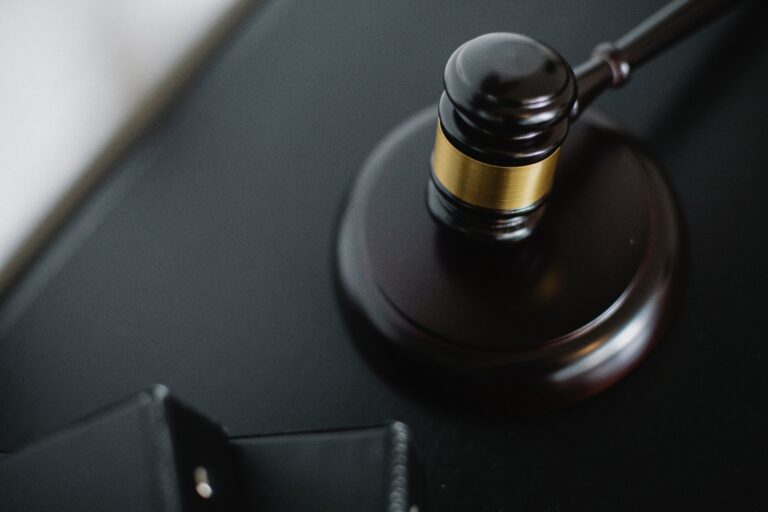
Planning Your Own Funeral Eases the Burden for Your Loved Ones
Planning your own funeral may seem like a morbid task. However, it can significantly reduce the stress and financial burden on your loved ones after you pass away. Choice Mutual’s recent article “How To Plan Your Own Funeral: 10-Step Guide + Checklist” explains that by making decisions about your funeral arrangements in advance, you can ensure that your final wishes are respected and that your family is spared from making difficult decisions during a time of grief.
Why Should You Consider Planning Your Funeral Early?
After a death, family and loved ones are responsible for managing your estate and organizing a funeral while grieving. Planning your funeral early while drafting or as part of your estate plan is a thoughtful and responsible step that alleviates the emotional and financial strain on your loved ones. If you’ve already created your estate plan, an experienced estate planning attorney can help you detail your funeral planning in a “Last Wishes” document or addendum to your estate planning documents. These documents provide crucial guidance that reflects your personal preferences and eases the decision-making process for loved ones.
What are the First Steps in Pre-Planning Your Funeral?
Choosing a Funeral Home
One of the first decisions in pre-planning is selecting a funeral home. This choice is crucial as it can significantly affect the logistics and cost of your funeral services. Consider the reputation, services offered and pricing of different funeral homes. You can select a funeral home, create a plan and even prepay for it. Be sure to share existing funeral plans or prepayments with your estate lawyer.
Deciding Between Burial and Cremation
Do you prefer a burial or cremation? Each option comes with different considerations, such as the type of ceremony, the handling of remains and the associated costs. If choosing burial, consider the kind of burial—traditional, in a vault, or a natural burial. If cremation is your choice, decide whether you want it done before or after the funeral service and what should happen to your ashes.
How Do You Want to Be Remembered?
Selecting the Type of Funeral or Memorial Service
Your funeral or memorial service can reflect your personality and values. Decide whether you want a traditional funeral, a celebration of life, or a simple memorial service. Each type of service offers different atmospheres and can be tailored to how you wish to be remembered.
Planning the Ceremony Details
Think about the location, the attendees and the flow of the ceremony. Would you prefer a religious, secular, or culturally specific service? Details like flowers, music, and readings should also be considered, as these can make the service personal and meaningful.
How Can You Ease the Funeral Logistics for Your Family?
Creating a Last Wishes Document as Part of Your Estate Plan
Creating a Last Wishes document of your funeral plans and sharing it with your family is essential. This document should detail all your decisions—from the type of service to the specifics of your burial or cremation preferences. It is also wise to discuss these plans with your loved ones to ensure that they understand your wishes and the reasons behind them.
Financial Planning for Funeral Expenses
Consider how you will finance your funeral. Options include savings, life insurance, prepaid burial plans, or relying on your estate. Your estate planning attorney can guide you in choosing the right prepaid funeral plan based on your financial situation.
What are the Benefits of Planning Your Funeral in Advance?
Planning your funeral in advance can significantly ease the emotional and financial burden on your loved ones. By making critical decisions about your funeral arrangements, such as the type of service and financing options, you ensure that your wishes are honored and relieve your family of added stress. Consulting with a qualified estate planning attorney can provide clarity and direction, ensuring that you make informed decisions integrated with your estate plan.
Key Takeaways
- Early Planning: Start funeral arrangements early when drafting your estate plan to reduce future stress for your loved ones.
- Funeral Home Selection: Choose a funeral home carefully, considering services, reputation and pricing to avoid future complications.
- Burial vs. Cremation: Decide whether you prefer burial or cremation, and detail your specific wishes for handling these.
- Planning the Service: Tailor your funeral or memorial service to reflect your personality and values, making the event meaningful for attendees.
- Documenting Last Wishes: Record all funeral plans, include them with your estate plan and share them with your family to ensure that your final wishes are honored.
- Financial Planning: Explore financing options like insurance, savings, or prepaid plans to manage funeral costs effectively and prevent financial strain on your family.
Reference: Choice Mutual (April 2, 2024) “How To Plan Your Own Funeral: 10-Step Guide + Checklist”



